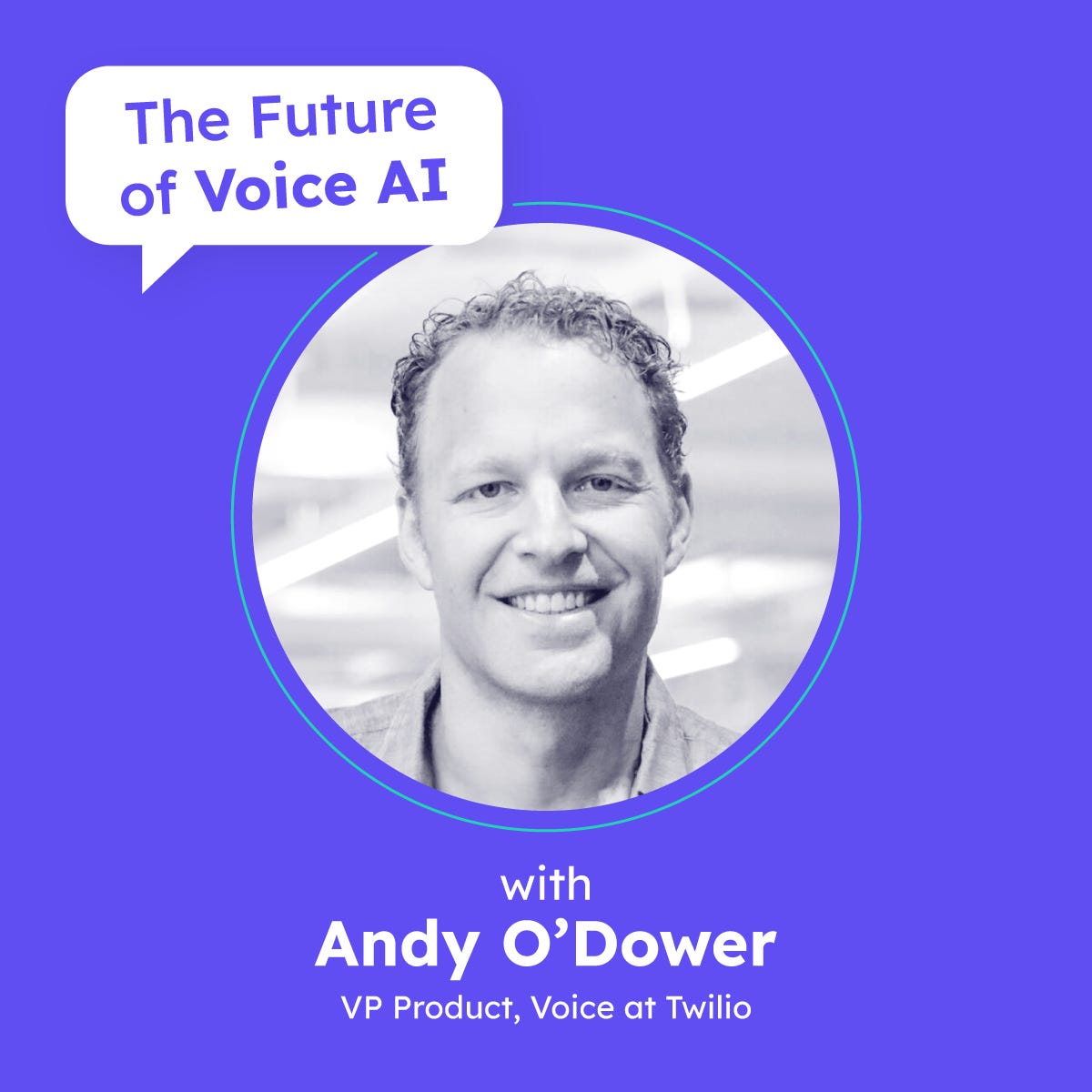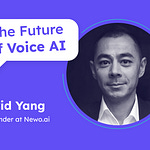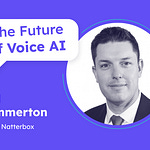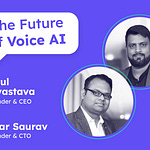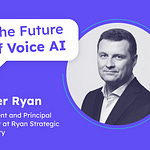In The Future of Voice AI series of interviews, Davit asks three questions to his guests:
- What problems do you currently see in Enterprise Voice AI?
- How does your company solve these problems?
- What solutions do you envision in the next 5 years?This episode’s guest is Andy O’Dower, VP Product of Voice, Twilio.
Andy is the VP of Product at Twilio, where he oversees the Voice product lines. He focuses on leveraging AI/ML and cutting-edge APIs to build the next generation of communications.
Twilio is a customer engagement platform used by over 300,000 global enterprises and digital disruptors plus more than 10 million developers worldwide to build unique, personalized experiences for their customers. For well over a decade, Twilio has been known for democratizing channels like voice, text, chat, video, and email through APIs, giving organizations the tools to build meaningful interactions with customers on the channels they prefer. Today’s customers expect businesses to engage with them seamlessly at every touchpoint. That’s why Twilio has grown beyond communication APIs and created solutions for data, sales, support, marketing, authentication, and more—helping businesses personalize and streamline every interaction.
Recap Video
Summary
Integration Challenges and Evolution: Andy discusses the hurdles in integrating diverse voice AI technologies to create cohesive systems that meet industry-specific needs. He outlines how Twilio is navigating these challenges by developing solutions that streamline the integration process for businesses, especially in the finance sector.
Platform-First approach: Andy details Twilio's efforts in leading the charge towards integrated voice AI solutions. He outlines how Twilio's offerings are designed to overcome integration challenges and meet the evolving demands of the industry.
Comprehensive Product Offerings: There is a strong trend towards comprehensive product solutions in voice AI. Andy points out that industries are moving away from piecemeal approaches, favoring all-encompassing solutions that address multiple needs simultaneously.
Future Directions and Innovations: Looking ahead, the interview touches on the potential future developments in voice AI. Andy hints at the ongoing work to further refine and enhance Twilio's product offerings to address emerging challenges and opportunities in voice AI technology.
Takeaways
Scale: Twilio handles a vast volume of calls globally (150 million calls daily) and ensures reliability and high-quality voice services.
Personalization: The integration of voice AI technologies, such as STT and LLM with Twilio's infrastructure enables personalized and context-aware interactions.
Latency: Latency is often an overlooked problem in Voice AI.
Small Language Models: Small language models are often better suited to solve specific niche problems than LLMs.
Platform-first Approach: Twilio adopts a platform approach, providing both in-house solutions and partnerships (e.g., with Google and Dialogflow) to offer a broad spectrum of voice AI capabilities.
Future of Voice AI: The future of voice AI involves creating more sophisticated and autonomous voice agents that can handle complex interactions securely across multiple channels. This includes better understanding user sentiment and intent in real-time, enhancing both customer service and sales.


